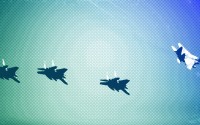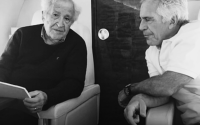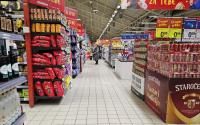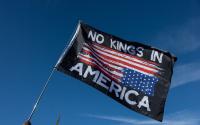10 November 2004Kim Sengupta in Camp Dogwood
US forces reached the centre of Fallujah yesterday after hours of street fighting and barrages from artillery, tank and helicopter gunships. As night fell, the Americans announced that they had captured key strategic targets and were carrying out house-to-house searches.
The Pentagon said that at least 10 US and two Iraqi soldiers had died since the offensive began on Monday night. Reports of insurgents' deaths vary between 12 and 42. Iyad Allawi, the Iraqi interim Prime Minister, claimed that troops had detained 38 insurgents entrenched at the hospital.
Even as US commanders were declaring that the rebel stronghold would be "pacified" very soon, the price being paid for the victory was becoming evident in the carnage being visited around the country. It appears that many of the insurgents who had been based in Fallujah slipped out of the city and moved to other parts of Iraq before the offensive.
The estimates given by the US military about the numbers of insurgents in Fallujah have varied. Two weeks ago it was claimed there were 6,000 heavily armed militants, including the Jordanian terrorist, Abu Musab al-Zarqawi, in the city. However, small groups of fighters, sometimes no more than 20 strong, have attempted to engage the Americans, who vastly outnumber and outgun them, before fading away.
The explanation of what had happened to those missing fighters could be found, perhaps, in what happened elsewhere in Iraq yesterday.
Hundreds of armed men entered Ramadi, taking over government buildings, while in Baquba, north of Baghdad, 45 people, including 25 policemen were killed in a series of attacks. Eleven people died in bombings in Baghdad, and an attack on a National Guard headquarters in Kirkuk killed three people.
There was also political unravelling, with one of the main Sunni groups, the Iraqi Islamic Party, resigning from the Iraqi government in protest at the assault. "The American attack on our people in Fallujah has led and will lead to more killings and genocide without mercy from the Americans," said its leader, Mohsen Abdel Hamid. The Association of Muslim Scholars, an influential group of Sunni clerics, called for a boycott of next January's planned elections which were, it said, being held "over the corpses of those killed in Fallujah and the blood of the wounded".
There were reports from Fallujah that almost 500 Iraqi government troops almost a battalion had refused to fight alongside the Americans, a repetition of similar incidents when US forces attacked the city last April. In Washington, Donald Rumsfeld, the US Defence Secretary, said: "I would characterise it as an isolated problem."
The government imposed an indefinite night-time curfew in Baghdad. Officials said there was "credible evidence" that militants escaping from Fallujah had regrouped in the capital and were planning more attacks.
Colonel Michael Formica, the commander of the 1st Cavalry Brigade, said in Fallujah that escaping fighters were a real problem. "My concern now is only one not to allow any enemy to escape. As we tighten the noose around him, he will move to escape to fight another day. I do not want these guys to get out of here. I want them killed or captured as they flee".
Intermittent fighting was under way in the northern sectors of Fallujah, with at least two American tanks reported to be engulfed in flames. Despite meeting fierce and, at times, sustained resistance, senior officers of the army's Task Force, of the 1st Infantry Division, said they had not encountered any of the more than 120 "suicide cars" supposedly waiting for them packed with explosives. However, other units reported that they had found booby-trapped buildings.
By midday, US armoured units, attacking from the north, had made their way to the highway running from east to west through the city centre and crossed over into the southern part of the city. One of the objectives surrounded by US forces was the al-Hidra mosque half a mile inside the city. According to the American commanders, the mosque was being used as an a weapons dump and planning centre for militants, and will be captured in due course with Iraqi government troops leading the way.
US troops are using Fallujah's main railway station as a forward base and detention centre. Iraqi government troops brought in nine handcuffed prisoners from the Jolan area, where many of the militants are said to have gathered. They said two were Egyptians and one was Syrian.
Captain Robert Bodisch, a Marines tank company commander, said: "They are putting up a strong fight ... these people are hardcore ... A man pulled out from behind a wall and fired an RPG [rocket-propelled grenade] at my tank. I have to get another tank to go back in there."
Local people claimed US warplanes bombed a clinic, causing many casualties. The main hospital was captured by US and Iraqi government forces on Monday, when, according to government figures, more than 40 "terrorists" were killed.
http://news.independent.co.uk/low_res/story.jsp?story=581298&host=3&dir=75






